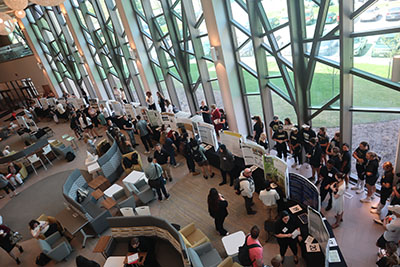Partisan Polarization in Congress: Unraveling the Impact of Affective Tribalism on Legislative Gridlock
Start Date
9-4-2024 12:00 AM
Description
This proposal outlines research examining how growing partisan animosity has obstructed legislative compromise and governance in Congress over the last two decades. The literature review synthesizes evidence demonstrating increased polarization driven by partisan tribal identities and hostility. A hypothesis is derived proposing that districts with greater party homogeneity will display higher legislator partisan animosity. Variables are legislator partisan animosity measured via sentiment analysis of speeches and district partisan lean measured by vote margins. The research design utilizes regression analysis of these variables for House members over time. Barriers include data access, measurement validity, omitted variable bias, and limits of correlational findings. But a study like this could provide needed empirical evidence illuminating impacts of affective polarization on congressional dysfunction.
Recommended Citation
Dockins, Taylor, "Partisan Polarization in Congress: Unraveling the Impact of Affective Tribalism on Legislative Gridlock" (2024). 2024 Student Academic Showcase. 10.
https://digitalcommons.lindenwood.edu/src_2024/Oral_Presentations/Session1/10
Partisan Polarization in Congress: Unraveling the Impact of Affective Tribalism on Legislative Gridlock
This proposal outlines research examining how growing partisan animosity has obstructed legislative compromise and governance in Congress over the last two decades. The literature review synthesizes evidence demonstrating increased polarization driven by partisan tribal identities and hostility. A hypothesis is derived proposing that districts with greater party homogeneity will display higher legislator partisan animosity. Variables are legislator partisan animosity measured via sentiment analysis of speeches and district partisan lean measured by vote margins. The research design utilizes regression analysis of these variables for House members over time. Barriers include data access, measurement validity, omitted variable bias, and limits of correlational findings. But a study like this could provide needed empirical evidence illuminating impacts of affective polarization on congressional dysfunction.


